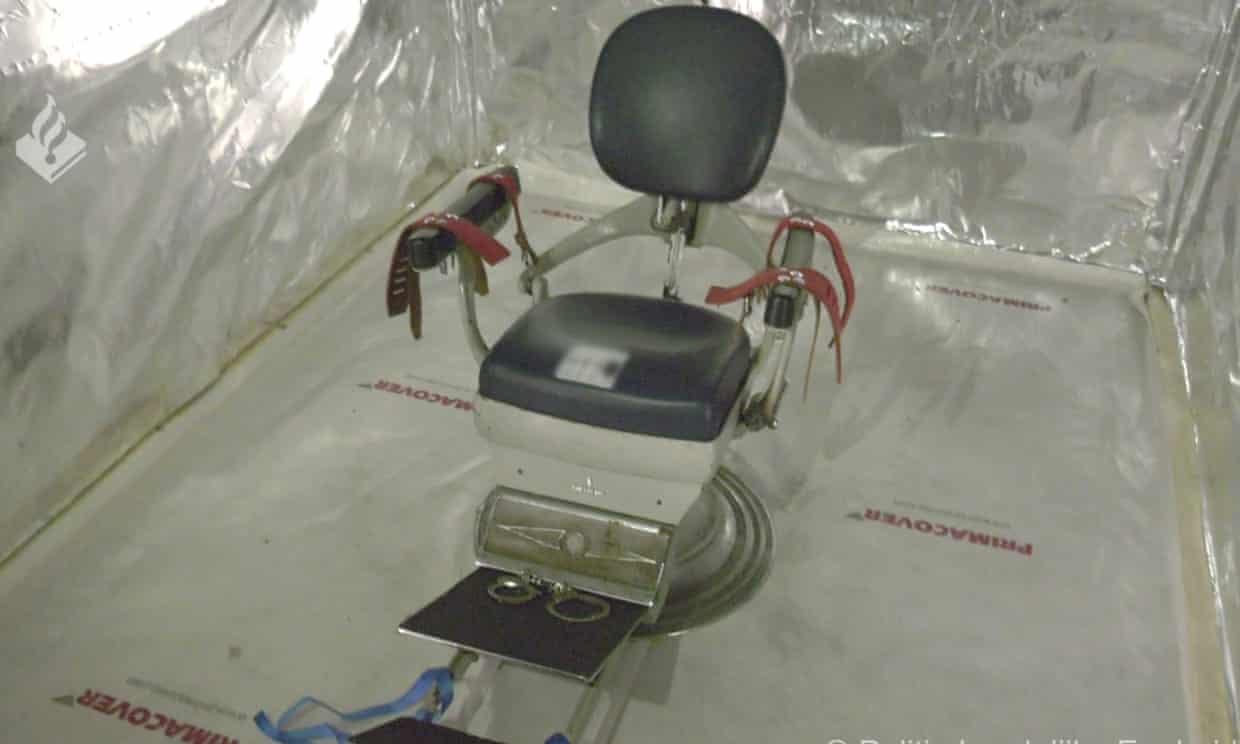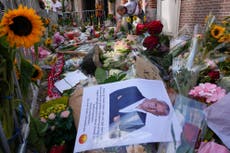Dutch prosecutor says torture chamber discovery shows cocaine users ‘consequences of their habits’
A refashioned dentist chair with arm and leg straps was in one of the containers discovered by police

The Dutch police’s discovery of a soundproofed torture chamber suspected to be used by a drugs gang should remind cocaine users of the consequences of their habits, according to a public prosecutor.
Koos Plooij told a court in Amsterdam that violence caused by the drug trade was a “repulsive, but apparently unavoidable” result of the widespread use of illegal substances in the Netherlands and its neighbouring nations.
“The question is how many people are willing to admit that there is indeed a connection between their cocaine use – whether it is to party, deal with work stress or suppress psychological problems – and the underworld that is happy to answer demand but according to its own rules: corrupting, undermining, tough, sparing nothing and nobody,” Mr Plooij said.
The remarks were made at the latest hearing in the case of 11 suspects who are accused of planning to murder rivals at an apparent torture site in Wouwse Plantage in Brabant. One of the suspects is an alleged ring leader known as Roger ‘Piet Costa’ P.
In 2020, Dutch police officers discovered seven shipping containers in Wouwse Plantage in Brabant using intercepted messages. Six of the containers were allegedly used as cells containing handcuffs and legcuffs.
A seventh container included a repurposed dentist’s chair with straps for tying arms and legs, finger clamps, scalpels, claw hammers, pliers, loppers pruning shears, gas burners, tie wraps and duct tape. The container was soundproofed.
Officers also found a freezer big enough to hold multiple people and in it a mortar mixing tub which was allegedly going to be used for waterboarding victims.
Prosecutors provided the court with an intercepted message from the suspect known as Piet Costa in which he wrote: “There are a few now and I hope I get the chance to torture them”.
The court heard that a second site in Rotterdam was the base for an “arrest team” whose task was to pick up their intended targets and take them to the site in Wouwse Plantage.
In both sites, officers found stolen police uniforms, bulletproof vests and blue flashing lights.
Prosecutors called for a 12-year jail sentence for Roger P, known as Piet Costa, who is already facing a jail sentence of 17 years and nine months sentence over a separate conviction. He has been described as a prominent figure in the drug world.
The prosecution said there was nothing to substantiate the claims made by one of the suspects that they believed the containers were being set up for the purposes of growing hemp.
The suspects deny the charges.
Join our commenting forum
Join thought-provoking conversations, follow other Independent readers and see their replies
Comments


Bookmark popover
Removed from bookmarks